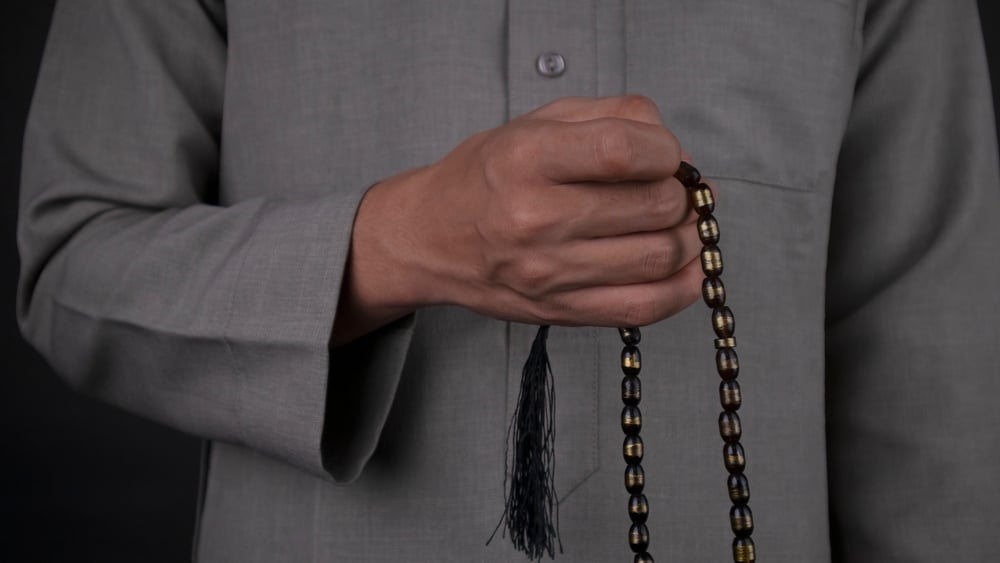Is the Permissibility of Hadra the Main Opinion of the Madhab?
Shafi'i Fiqh
Answered by Shaykh Irshaad Sedick
Question
I have some scholars’ statements about Hadra. I wanted to ask you if the permissibility of Hadra is the main opinion of the Madhab.
Shafi’i scholars: Imam Nawawi, Imam Ibn Hajar al-Haytami, Imam al-’Izz Ibn ‘Abd al-Salam, and Imam Jalal al-Din al-Suyuti.
Answer
In the Name of Allah, the Most Merciful and Compassionate.
May Allah alleviate our difficulties and guide us to what pleases Him. Amin.
Yes, the scholars in question are some of the most authoritative in the Shafi‘I School, and rulings are usually given according to their Juristic opinions, and Allah knows best.
The Contemporary Shafi‘I Scholar, Shaykh Amjad Rasheed, addressed this question:
The hadra is a group dhikr where the attendees often stand in a circle. Depending on the Sufi order, it can contain elements such as singing, dancing, and some kinds of music. [Qibla.com]
The Ruling on Hadra
The ruling on an issue derives from its conceptualization (The ruling on an issue derives from its conceptualization is a maxim of classical logic. It means that before one can pass judgment on an issue, one has to understand it correctly). Whatever has been decisively proven as impermissible is not permitted, and whatever has been decisively proven as permissible is permitted.
Criteria
If the hadra contains something impermissible, like the free-mixing of marriageable men and women in a way conducive to temptation or unrestrained looking at the unlawful, then attending it is forbidden.
Music
Similarly, if (the hadra) includes the playing of musical instruments like the kubah (a drum that is wide at each end and narrow in the middle), mizmar (a woodwind instrument similar to the flute), lute (Arabic; ‘ud), and similar musical instruments, then attending it is forbidden.
As for the duff (a shallow drum, like a tambourine but without the metal jingles) and drum that is wide at both ends and the middle, they are permissible in our School for men and women, during weddings and other times.
Suppose the hadra is free from forbidden elements and combines the remembrance of Allah Most High, praising Him as He deserves, and lauding the Prophet (Allah bless him and grant him peace). In that case, all of this is fundamentally recommended in Islamic law according to the consensus of Muslims, as is apparent.
Movement
Suppose movement is added to this, as some Sufis do. In that case, there is no harm in it because dancing is permissible for men and women in our School as long it doesn’t contain effeminate or licentious movements as wicked and shameless people do. Otherwise (if it contains such prohibited movements), it is forbidden.
Scholars of the Shafi‘I School
Imam Ibn Hajar al-Haytami, the last muharrir imam (one who authoritatively identifies the strong and weak positions within the School) of our School, was asked about Sufis dancing during their ecstasy, and he upheld their practice. In part, he says, “It is permissible to stand and dance during gatherings of remembrance (of Allah) and audition according to a group of great scholars, including Shaykh al-Islam Ibn ‘Abd al-Salam.” [Haytami, al-Fatawa al-Hadithiyya]
Imam Jalal al-Din al-Suyuti, the imam and hadith master, was asked about the Sufi dance: is it permissible to repudiate those who do it? He replied that it was not permissible to repudiate them and that the one who repudiates is mistaken. He narrated this from a group of scholars [Suyuti, al-Hawi li al-Fatawi].
Applying Wisdom
The upshot is that if one wishes to do this (i.e., attend a hadra) while observing the rules mentioned above, it is not permissible to repudiate him because, at worst, this matter is differed upon. It is not permissible to repudiate one who does an act that is differed upon, as Imam Ghazali (in Ihya), Imam Nawawi (in Sharh Sahih Muslim), Imam al-‘Izz Ibn ‘Abd al-Salam (in Shajarah al-Ahwal Wa al-Ma‘arif), and others point out.
I pray this is of benefit and that Allah guides us all.
[Shaykh] Irshaad Sedick
Checked and Approved by Shaykh Faraz Rabbani
Shaykh Irshaad Sedick was raised in South Africa in a traditional Muslim family. He graduated from Dar al-Ulum al-Arabiyyah al-Islamiyyah in Strand, Western Cape, under the guidance of the late world-renowned scholar Shaykh Taha Karaan.
Shaykh Irshaad received Ijaza from many luminaries of the Islamic world, including Shaykh Taha Karaan, Mawlana Yusuf Karaan, and Mawlana Abdul Hafeez Makki, among others.
He is the author of the text “The Musnad of Ahmad ibn Hanbal: A Hujjah or not?” He has served as the Director of the Discover Islam Centre and Al Jeem Foundation. For the last five years till present, he has served as the Khatib of Masjid Ar-Rashideen, Mowbray, Cape Town.
Shaykh Irshaad has thirteen years of teaching experience at some of the leading Islamic institutes in Cape Town). He is currently building an Islamic online learning and media platform called ‘Isnad Academy’ and has completed his Master’s degree in the study of Islam at the University of Johannesburg. He has a keen interest in healthy living and fitness.
